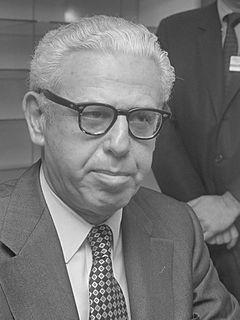A Quote by Strom Thurmond
By its attempt to regulate and govern the private businesses, which are miscalled public accommodations in the bill, this proposal would inject the Government into the most sensitive areas of human contractual relations-agreements for personal services. In so doing, constitutional interpretations of long standing are being swept aside in favor of tortuous rationalizations which studiously ignore the constitutionally-forbidden imposition of involuntary servitude on citizens
Quote Topics
Accommodations
Agreements
Areas
Aside
Attempt
Being
Bill
Businesses
Citizens
Constitutional
Doing
Favor
Forbidden
Govern
Government
Human
Ignore
Imposition
Interpretations
Involuntary
Long
Most
Personal
Private
Proposal
Public
Regulate
Relations
Sensitive
Services
Servitude
Standing
Swept
Which
Would
Related Quotes
There is no better way to return the matter of taxation to full public discusssion than to repeal the withholding taxes on wages and salaries. Only when the American people are confronted with the enormous excesses of government in a personal and direct way - by an annual bill for services rendered - will they be able to make an informed judgment about which services they want and which ones they can do without.
If the Government gets into business on any large scale, we soon find that the beneficiaries attempt to play a large part in the control. While in theory it is to serve the public, in practice it will be very largely serving private interests. It comes to be regarded as a species of government favor and those who are the most adroit get the larger part of it.
It is fundamental that the great powers of Congress to conduct war and to regulate the Nation's foreign relations are subject to the constitutional requirements of due process. The imperative necessity for safeguarding these rights to procedural due process under the gravest of emergencies has existed throughout our constitutional history, for it is then, under the pressing exigencies of crisis, that there is the greatest temptation to dispense with fundamental constitutional guarantees which, it is feared, will inhibit governmental action.
The true forms of government, therefore, are those in which the one, or the few, or the many, govern with a view to the common interest; but governments which rule with a view to the private interest, whether of the one or of the few, or of the many, are perversions. For the members of a state, if they are truly citizens, ought to participate in its advantages.
The administration of private justice between the citizens of the same state, the supervision of agriculture and of other concerns of a similar nature, all those things in short which are proper to be provided for by local legislation, can never be desirable cares of a general jurisdiction . . . the attempt to exercise these powers would be as troublesome as it would be nugatory; and the possession of them, for that reason, would contribute nothing to the dignity, to the importance, or to the splendour of the national government.
Men that are free, well-born, well-bred, and conversant in honest companies, have naturally an instinct and spur that prompteth them unto virtuous actions, and withdraws them from vice, which is called honour. Those same men, when by base subjection and constraint they are brought under and kept down, turn aside from that noble disposition, by which they formerly were inclined to virtue, to shake off and break that bond of servitude, wherein they are so tyrannously enslaved; for it is agreeable with the nature of man to long after things forbidden, and to desire what is denied us.































